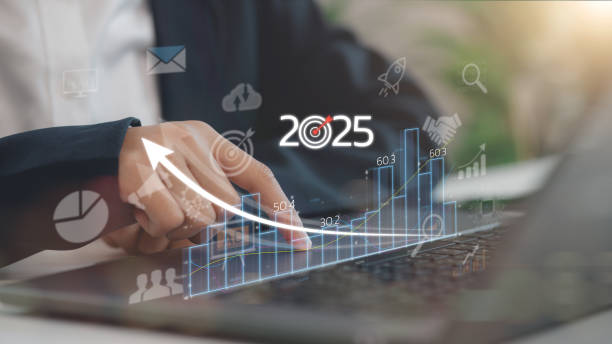Contents
Table of Contents
- Automation and AI in Payroll
- Cloud-Based Payroll Solutions
- Real-Time Payroll Processing
- Integration with HR and Accounting Systems
- Enhanced Data Security and Compliance
- Employee Self-Service Portals
In today’s fast-paced business landscape, payroll management has evolved far beyond issuing paychecks. Employers are now expected to navigate tax regulations, employee classifications, benefits integration, and labor law compliance while ensuring accuracy and timeliness. Traditional payroll systems often struggle to keep up, leading to errors, inefficiencies, and costly delays. To meet these challenges, businesses are embracing more innovative, agile approaches to payroll management.
Recent developments in technology have led to the rise of advanced payroll systems that streamline operations and reduce administrative burden. These systems automate routine tasks, minimize human error, and provide real-time data that can help inform strategic decisions. With improved accuracy, businesses can better manage labor costs, boost compliance, and ensure a seamless employee experience. By leveraging these innovations, companies of all sizes can create more efficient workflows and free up valuable time to focus on core operations.
Automation and AI in Payroll
Traditionally, payroll processing demanded significant time and attention, frequently leading to errors, inefficiencies, and compliance headaches. With the emergence of automation and artificial intelligence, these pain points are quickly becoming things of the past. Today’s AI-driven payroll platforms expertly handle a range of complex calculations—from gross pay and deductions to intricate taxation and benefits management—ensuring precise outcomes every time. These systems minimize legal and financial exposure while maximizing efficiency by staying constantly updated with regulations and algorithmically flagging any potential discrepancies or risks.
In addition to routine calculations, AI-powered payroll identifies data anomalies, prevents potential fraud, and generates actionable insights in real time. This vastly reduces the burden on HR teams and regulations professionals, allowing them to reallocate their time to strategic initiatives. These intelligent solutions are leading a paradigm shift—optimizing not just payroll processing but the entire payment lifecycle, resulting in faster, more accurate, and more secure payroll operations across any organization.
Cloud-Based Payroll Solutions
With an increasingly mobile workforce and the expansion of remote operations, the demand for flexible, remote-ready payroll systems is rising. Cloud-based payroll platforms provide businesses the agility to keep up with an ever-shifting landscape. By enabling secure payroll processing and management from virtually anywhere and anytime, these systems support businesses with remote teams, international operations, and flexible work arrangements. Cloud technology lowers IT expenses by removing the need for on-premises servers and hardware. It also delivers seamless automatic updates that keep businesses in lockstep with fast-changing labor laws and regulations.
Cloud platforms not only provide administrative convenience—they also act as collaborative hubs. Cloud-based solutions offer real-time, always-up-to-date data easily shared between HR, finance, and leadership, dramatically reducing errors and delays from manual handoffs. Cloud scalability is another key advantage, allowing organizations to adapt their payroll solution as they grow, without costly or disruptive system migrations.
Real-Time Payroll Processing
The traditional payroll schedule often forces employees to wait biweekly or even monthly to receive their wages, a system that is becoming less compatible with today’s workforce expectations. Real-time payroll processing is transforming this legacy approach, enabling workers to access their earned income as soon as each shift or task is completed. This is especially helpful for hourly workers, gig employees, or younger staff who prioritize financial flexibility and instant rewards for their work.
Beyond employee satisfaction, real-time payroll streamlines financial operations by removing traditional processing delays, reducing the risk of direct deposit errors, and eliminating the administrative backlogs often caused by exceptions or banking issues. As a business benefit, this agility can greatly improve employer branding, raise morale, and enhance talent retention—especially in industries where competition for skilled workers is intense.
Integration with HR and Accounting Systems
Siloed payroll systems can lead to tedious duplication, inconsistency, and costly errors. Modern payroll solutions offer seamless integration with HR and accounting platforms, creating a central ecosystem where data flows freely and automatically between all relevant departments. This unified approach eliminates redundant data entry, minimizes mistakes, and ensures every stakeholder—from HR and finance directors to compliance officers—has immediate access to up-to-date, reliable payroll and personnel information.
Integrated systems mean personnel changes such as new hires, raises, or exits are instantly reflected across payroll, benefits, compliance, and financial records. With accurate, real-time visibility into labor costs and headcount data, strategic decisions become easier and more informed. For finance teams, integrated payroll expedites audits and budgeting, while HR gains actionable analytics for workforce planning and organizational development.
Enhanced Data Security and Compliance
As businesses are entrusted with increasingly sensitive employee financial and personal data, the risks posed by data breaches and ever-tightening regulations can’t be ignored. The latest payroll systems rise to this challenge through advanced multi-layered security features, including encryption, robust user access controls, and proactive monitoring tools. These measures protect sensitive payroll data from unauthorized access, cyber threats, and potential misuse.
Automated compliance monitoring is an equally crucial innovation. Payroll systems now include features that automatically flag regulatory changes, help organizations keep up with new legal requirements, and generate audit trails that simplify internal or external investigations. By shouldering the burden of compliance management, payroll innovations let HR and business leaders shift their attention from legal worries to core activities that fuel company growth and resilience.
Employee Self-Service Portals
Today’s employees expect greater transparency and control over their work-related data. Self-service portals included in modern payroll systems meet this expectation by letting team members access their pay history, download tax slips, manage benefits, review policies, and update personal records around the clock, with no HR mediation required.
These intuitive platforms boost workforce engagement while slashing the manual workload for HR teams. Requests for vacation time, benefits enrollment, or tax document retrieval can all be handled easily through a few clicks. The result is higher employee satisfaction and greater data accuracy, as individuals are empowered to quickly correct or update their own information when needed, enhancing organizational accountability and efficiency.




